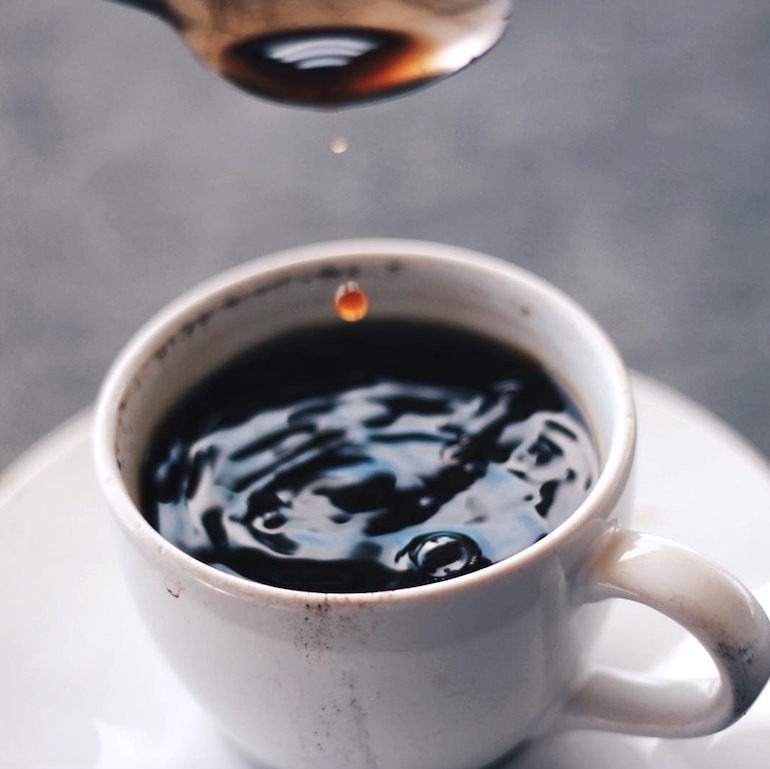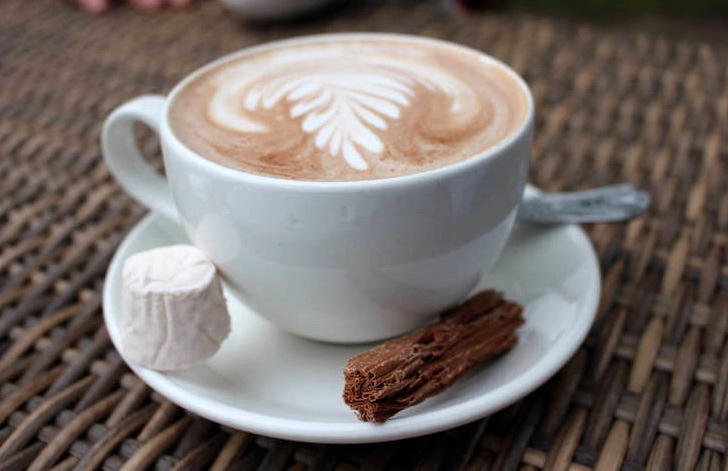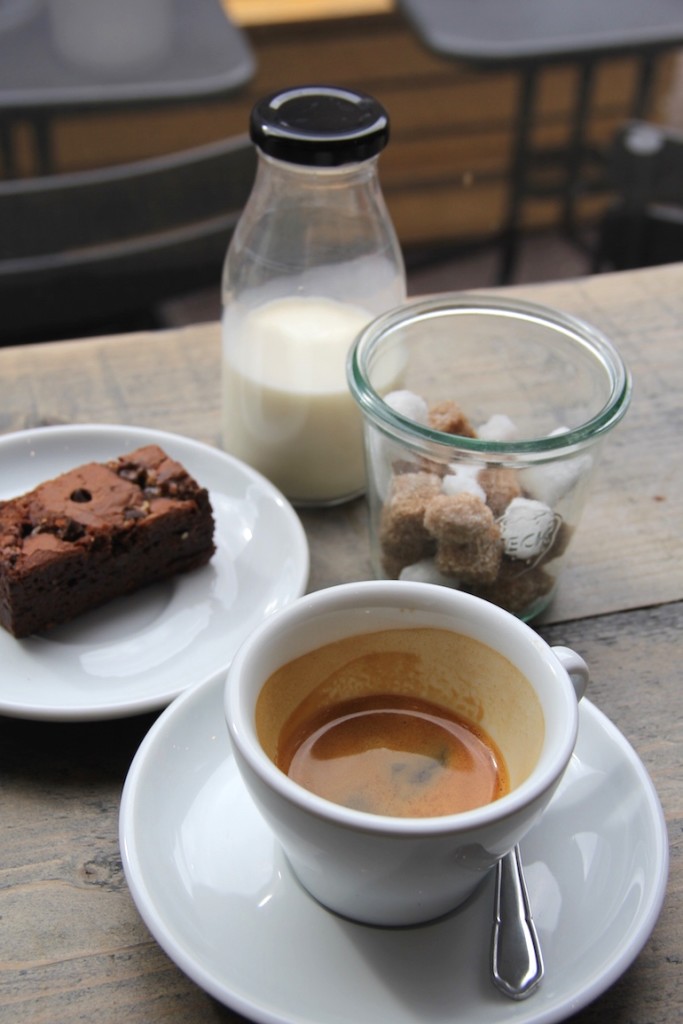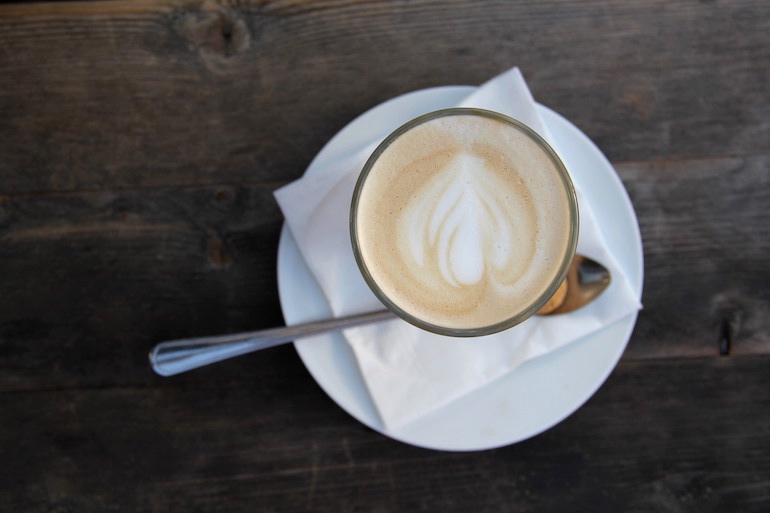We’ve all heard the health benefits of drinking coffee: it’s full of antioxidants and gives you the jolt of energy you need to make it through the day; it’s also been linked to combating Parkinson’s disease, liver disease, skin cancer, diabetes, and even suicide.
We take these virtues in stride because in addition to all of these benefits because coffee is delicious. And if you’re like me, you love the sensation of clutching a warm latte on a brisk day.
A good ol’ cup of joe is also just a part of our culture and is nearly synonymous with socializing. We’re on constant coffee dates with everyone and anyone, from our closest friends to people we’ve just met. And the Nespresso machine is my office’s hot spot.
So why would I give up the glorious thing for an entire week?
I’ve been drinking coffee for so long that I can’t even pinpoint when I started. If I had to guess, I’d estimate that when I was about thirteen, I would beg my dad to let me take swigs of his Starbucks white chocolate mocha. Fast forward six years into the future and here I am, drinking a total of four to six espresso shots a day.
Intermixed with various types of milk and syrups, I pound coffee pretty hard on a daily basis. I suspected that it couldn’t be all rainbows and sunshine for my health and well-being, despite all of the said benefits.
I decided not to do any preliminary research before I started my experiment. I’m so much of a hypochondriac that if WebMD so much as hinted that I’d slowly develop gills as a result of cutting out coffee, I knew that my brain would trick itself into feeling something growing on my neck.
I wanted to see how my body would react without the influence of what I knew what I might experience. As a result, I went into this caffeine-free week relatively blind to what lay ahead, and here’s how it panned out.
Day 1

Photo by Alec MacLean
When you quit anything cold turkey, the first day is always going to be the hardest, and day one of my no coffee week was no exception. From practically the moment my eyelids flipped open, my body sensed that I would be depriving it of its favorite drug, and I immediately developed a pounding headache.
It wasn’t bad enough to make me need take a quick shot of espresso, but it was annoying enough to slow me down in performing my daily tasks throughout the day at work. It felt as though I was moving in slow motion without my precious cup of coffee. In addition to the lethargy, I developed a twitch in my eyebrow.
I always thought that caffeine didn’t do anything for my system and that I just drank it out of habit, but as I learned on day one, caffeine plays an integral role in my ability to focus.
The day felt unbearably long and I came the conclusion that I was severely addicted to coffee without even noticing. Later in the evening, I felt so exhausted that I was forced to take an hour-long nap before dinner and an Advil for my still-lingering headache.
Day one of no coffee was in no way, shape, or form enjoyable.
Day Two

Photo by Alex Kaneshiro
In stark contrast to day one, I woke up on day two feeling incredibly well rested. With the sun shining and a newfound spring in my step, my energy levels and attitude were at Disney princess caliber.
Throughout the day, I still felt slightly sleepy, especially after staring at my computer screen for an extended amount of time. However, it was nowhere near as horrible as the first day.
I was ready to hit the hay at 10:30 pm, which was actually a good thing. In bed by 10:30 and asleep by 11 was the perfect formula for a nine hour sleep night.
Day Three

Photo by Alec MacLean
If you ask anyone who knows me, they’ll tell you that I not only can, but need twelve hours or more of sleep a night. However, although I had set myself up for a nine hour slumber the previous night, I was unable to sleep more than eight hours by day three.
I have never been the type of person who can wake up at a reasonable time without an alarm clock, but on day three of no coffee, my internal alarm woke me up. I always attributed needing sleep to the nature of my body, but perhaps it wasn’t so much that I needed sleep as it was that did not need as much coffee.
At work on day three, it suddenly dawned on me that I brewed my 9 am, 11 am, and 3 pm coffees while on autopilot and this routine was seamlessly and possibly insidiously integrated into my life. We always tell ourselves that we need just one more cup of coffee to get through the day, but do we really physically require it, or do we just feel like something is off if we don’t get up from our desks by 11 am for a stroll to the Keurig?
In alignment with the “no-no” concept of eating out of boredom, do we too often wire ourselves up with coffee simply to break the monotony of a slow-moving day?
Nevertheless, I still felt like I was dragging slightly in comparison to how I usually feel on caffeine. And while enjoying a brownie at my favorite café, I started to really appreciate how well an americano compliments the coffee shop pastries we consume on a weekly basis. I cracked and cheated slightly by ordering a decaf latte. I realized it was no longer my brain begging for the coffee, but my taste buds craving it it.
Day Four – Day Seven

By day four, it seemed as though my body had found a new equilibrium, a new balance without coffee. On the first day of my experiment, it felt like my brain was succumbing to a black hole of down-spiraling doom. But during the last four days of my coffee-free week, I started to realize that maybe I could in fact do without the copious amount of coffee I typically drink. As to be expected, I still felt less energized that I usually did, but it became more about missing my iced coffee with a French toast brunch than it was about actually needing caffeine to be a half-functional member of society.
As you may have figured from my gradual daily revelations, my takeaway from this week is that maybe, just maybe, you don’t need four to six espresso shots a day to get things done. While drinking caffeine itself is a way to kickstart our day, coffee might just be merely a part of a routine.
The moral of the story: when you’re on the verge of death studying at 2 am, go for the espresso shots, but when you’re simply craving the taste of a cappuccino, go decaf. You’ll probably sleep better this way and it wouldn’t even involve fully omitting caffeine from your daily life. I’ve honestly been sleeping like a rock for the past seven days, and learned that if I need a good night’s sleep I should probably lay off the unnecessary caffeine consumed the day before.
I can’t say that I feel that there’s any reason to nix coffee entirely from my lifestyle, but I don’t think it would hurt to cut back on the amount as a whole. What I felt and realized during the past week could have been directly correlated to my dietary habits, my sleep patterns, and other idiosyncratic things related to my own body, so if anyone out there is curious as to what would happen to them if they gave up coffee for a week, I’d highly recommend giving it a try.
Cutting out coffee completely may leave us feeling lifeless, but maybe we all just need to stop caffeinating ourselves to the point of being practically electrocuted. Perhaps we should start finding the right amount of caffeine that we really need during crunch time, and in turn, order decaf iced coffees with Sunday brunch.


